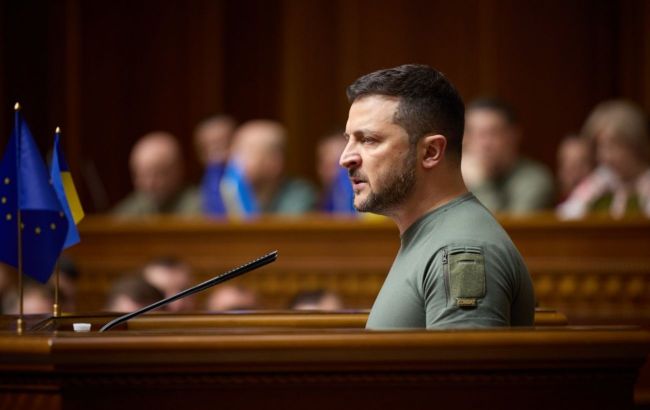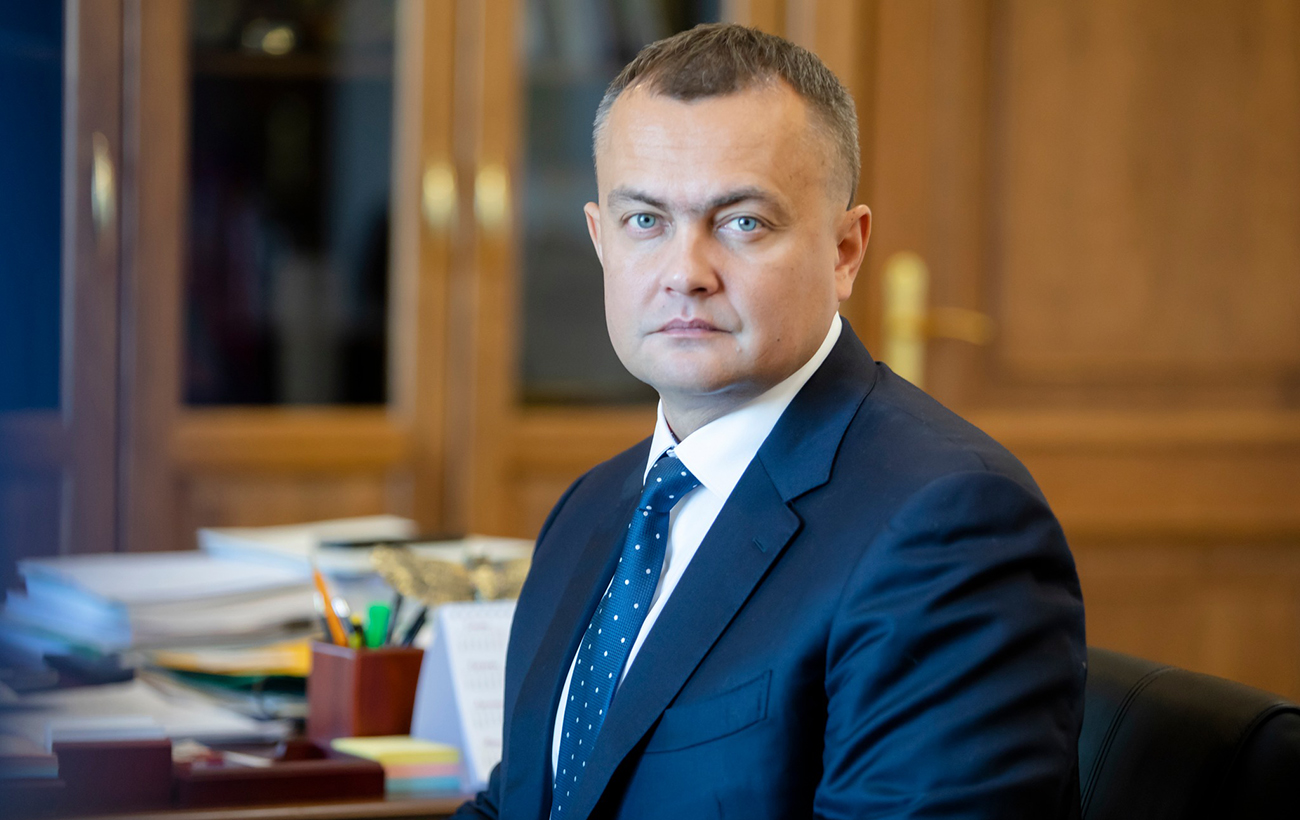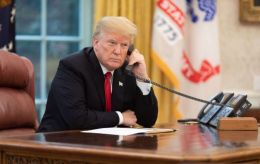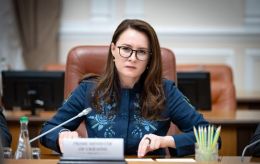Between the frontline and the homefront: Why political scandals resurfaced amid the war
 President of Ukraine Volodymyr Zelenskyy (Photo: prsident.gov.ua)
President of Ukraine Volodymyr Zelenskyy (Photo: prsident.gov.ua)
Recently, Ukrainian politics have been increasingly rocked by corruption and related scandals. The frequency of these incidents raises serious concerns about the state of affairs within the country's leadership. The question arises: what are the thoughts of those in power regarding these pervasive issues, and what decisive actions are they contemplating? In-depth analysis in the article by RBC-Ukraine.
The information space in Ukraine consists of two parallel streams of news. The first revolves around the war and its surrounding developments: events on the frontlines, ammunition supplies, sanctions, summits, conferences, and negotiations. The second stream covers news on bribery, dubious tenders, raids, arrests, officials purchasing luxury real estate or cars, and trips abroad for vacations, among other things.
And since there haven't been many significant media events on the frontline lately, news about bribery raids and similar scandals seem to take up even more space than the actual war.
Just in the past few days, the controversial tenders for TV series production by the State Cinema Agency have become the last straw leading to the dismissal of the Culture Minister, Oleksandr Tkachenko. Questions regarding Tkachenko had been accumulating for quite some time, with RBC-Ukraine insiders at the Presidential Office mentioning him as one of the top candidates to be removed from the government. Amidst an unremarkable telethon, which Tkachenko oversaw, and recent scandals involving the Ministry of Culture, patience within the Presidential Office clearly reached its limit.
 Ex-Ukrainian Minister of Culture and Information Policy Oleksandr Tkachenko (Photo: Vitalii Nosach, RBC-Ukraine)
Ex-Ukrainian Minister of Culture and Information Policy Oleksandr Tkachenko (Photo: Vitalii Nosach, RBC-Ukraine)
Last week, there was the case of the "Servant of the People" party MP Yurii Aristov vacationing in the Maldives. The situation with Odessa's military commissar Borisov also escalated, leading to his arrest and the seizure of his assets.
These recent scandals are not isolated incidents. Not long ago, there were other similar cases, such as the corruption charges against the MP from the Servant of the People party, Liudmyla Marchenko, caught accepting bribes and caught on camera throwing money over the fence of her house. Another colleague from the same party, Bohdan Torokhtii, along with his wife, purchased three expensive cars during the full-scale war and went on vacation to Bulgaria, where his wife also acquired real estate.
"One can see that people are now divided into those who are actively supporting the army on the frontline, those who are trying to make ends meet in the rear, and those who seem to be oblivious to it all, accepting bribes, acquiring property, and so on," said one government representative in a conversation with RBC-Ukraine.
Another insider advises interacting with property developers and luxury car dealerships to understand how the demand for luxury housing and cars has surged lately. In the current circumstances, the corrupt layer (taking advantage of the lack of declaration) considers this a reliable way to invest capital.
It is impossible to accurately estimate the overall scale of corruption in Ukraine, as it is likely even smaller in absolute numbers than before the major conflict due to the decreased overall economic output. However, what particularly outrages people is the occurrence of theft during the war, when citizens are pooling together what little they can to donate for a Mavic - only to see foreign properties and a luxurious car fleet of regional military commissars. For many ordinary Ukrainians, their Facebook feed has become a martyrdom: news of another relative, friend, classmate, or colleague perishing on the frontlines is mixed with reports of new corruption scandals.
Currently, according to a government insider, Ukraine finds itself in a zone of extreme turbulence, essentially facing a perfect storm. The counteroffensive is progressing slower than anticipated by most (although the major battles still lie ahead, thankfully recognized even in the West), and there have been no significant diplomatic victories lately. After the Russian shelling of the port infrastructure and the rupture of the grain deal, the economic prospects have become even more uncertain. And in addition to all this, there is an endless stream of corruption scandals.
"In essence, the only thing the government can currently influence is domestic policy. The situation on the frontline depends not only on our actions but if the West doesn't want to provide us with ATACMS missiles, then they won't, regardless of what we do. On the economic front - if the Russians bombard Odesa and the surrounding areas, we'll face serious problems immediately. As for internal politics, there are aspects that are solely within our control," explains a government insider in a conversation with RBC-Ukraine.
In light of the recent scandals at the Presidential Office, several decisions have been made, such as not allowing MPs and other officials to travel abroad. However, as the examples of Torokhtii and Aristov demonstrate, they have learned to successfully bypass previous restrictions. Obviously, a complete and absolute ban on leaving the country for all officials and deputies until the end of the war is not advisable, as it would be counterproductive, especially considering the importance of parliamentary diplomacy. Nevertheless, the circumstances of their travel will now be closely monitored to prevent situations like "going to a summit in Vilnius and ending up on vacation in the Maldives."
Additionally, according to sources, a decision has been made to review past trips of MPs, causing a great deal of unease among those who may have committed wrongdoings.
Clearly, there will be many more corruption-related news involving military commissariats. Borisov's case is just one of many, and these issues existed long before the situation with the Odesa recruitment center became public. The scale of the problem is considerable, as recently acknowledged by the President. And let's not forget President Zelenskyy's demand to send military commissars from the rear to the frontline. Has anyone checked how that order was implemented? Apparently not. And that is a question for the General Staff," commented one of the officials from the security agencies.
Ukraine's turbulence coincides with a change in the West's approach to providing financial support. Presently, funding is increasingly contingent on Ukraine's government meeting specific conditions, and nobody is willing to give money to Ukraine simply because it is on the frontline defending Western civilization from Russian aggression.
"We've come back to the times of Petro Oleksiyovych (Poroshenko - Ed.) when there was a program 'money in exchange for reforms'," smiled a source close to Zelenskyy in a conversation with RBC-Ukraine.
The Ukrainian government is being given a clear message: if they delay in meeting the requirements, they should not expect anything positive. It is due to this pressure that the Verkhovna Rada (Ukrainian Parliament - Ed.) was finally able to pass, in the first reading, a bill on the resumption of electronic asset declarations.
Taking all of this into account, the situation will remain unchanged in the near future, at least until the beginning of the heating season. Turbulence will continue, without major breakthroughs but also without significant victories. We will likely hear more about corruption cases, raids, arrests, and how the Ukrainian elite has acquired their wealth from questionable sources. According to rumors, this impulse is coming directly from President Zelensky, who becomes increasingly disappointed with both the parliamentary corps and most officials as a whole.
 Ex-MP Yurii Aristov (Photo: facebook.com/yuaristov)
Ex-MP Yurii Aristov (Photo: facebook.com/yuaristov)
But there is a significant problem here. In football, a player who commits a serious violation may initially get away with just a yellow card, and they will only be sent off the field if they repeat a similar wrongdoing. Judging by the sentiments in society, there's no more time for warnings - the guilty must be punished immediately. However, the issue is that these punishments have been, and obviously will be selective.
Indeed, Aristov went from being an MP to losing his mandate and facing a criminal case with formal charges within a matter of days. Meanwhile, his former colleague Torokhtii, who is guilty of comparable offenses, seems to be feeling quite comfortable. Another "servant," Andrii Kholodov, known for a series of scandals in the tobacco industry, reportedly left Ukraine earlier this year and is now building a business abroad with his wife, showing no intention of returning to the homeland - and there seem to be no significant repercussions awaiting him in Ukraine.
So, those players who have developed favorable relationships with the refereeing team can, for now, feel relatively safe.

